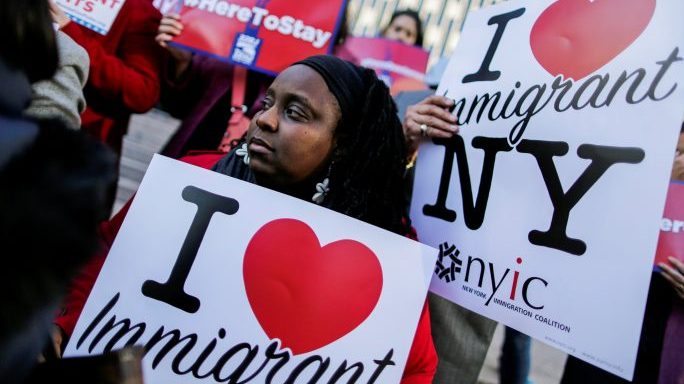Two members of the U.S. bishops’ conference migration committee called on Congress to “stop kicking the can down the road” on immigration reform after a unanimous Supreme Court ruled those immigrants receiving Temporary Protected Status (TPS) after entering the country illegally are ineligible to apply for “green cards” to stay in the country permanently.
“This is both ends of the Supreme Court agreeing, and I think they’re basically agreeing on a simple thing of our constitutional order that Congress makes the laws,” Archbishop Thomas Wenski of Miami told Crux. “Congress has in the past kicked the can down the road. This is a way of telling Congress to step up to the plate and do your job.”
TPS was created as part of the Immigration Act of 1990 as a way to grant temporary protection to people that can’t return to their home country because of an ongoing armed conflict, environmental disaster, or other extraordinary and temporary conditions. Each designation lasts 6, 12, or 18 months, but can be renewed. The most recent renewal was May 22 when the Biden administration re-designated Haiti under TPS for 18 months.
Those granted TPS are not removable from the United States, can obtain employment authorization and may be granted travel authorization.
There are approximately 400,000 people nationwide from 12 countries with TPS status. In addition to Haiti, these countries include: Burma, El Salvador, Honduras, Nepal, Nicaragua, Somalia, South Sudan, Sudan, Syria, Venezuela and Yemen.
Wenski cited the fact that when TPS was established it was never envisioned as a pathway to permanent residency. And that those who entered the U.S. legally and then obtained the humanitarian protection have always been able to and can still apply for nonimmigrant status.
Wenski, however, laments the fact that TPS status leaves the recipients in limbo once it expires and they’re still in the country.
“We have to look at realistically, if somebody is in this country seeking protection and if they stay here five years, 10 years, 15 years, or 20 years like some of the Hondurans and El Salvadorians, home is here and there’s no home to go back to, which means you have to have a mechanism to open the door to legal permanent residency, but that mechanism has to be enacted by law,” Wenski said.
Bishop Edward Weisenburger of Tucson said that federal law can always be amended to incorporate those that entered the country unlawfully. He cites the role they’ve played helping the country through the COVID-19 pandemic as one piece of evidence why.
“(Deferred Action for Childhood Arrivals) recipients, TPS recipients, undocumented workers impact our economy and our life as a nation profoundly,” Weisenburger said. “During the COVID-19 pandemic over 200,000 DACA recipients and unaccountable immigrants made essential work their lifeline for us and to us.”
“These people have too often faced uncertainty and rejection at the hands of a broken immigration system,” he continued.
Weisenburger is hopeful that even though “the ideal time for Congress to act is long since passed,” that Congress will take advantage of what he considers an opportunity to make progress on immigration reform, citing the passing of the American Dream and Promise Act and the Farm Workforce Modernization Act in the House of Representatives in March.
The American Dream and Promise Act would provide a pathway to citizenship for Dreamers, TPS recipients and people with Deferred Enforced Departure status. The Farm Workforce Modernization Act, meanwhile, would establish a program for agricultural workers in the U.S. to earn legal status through continued agricultural employment and economic contributions.
Weisenburger said the bills make him “hopeful that some substantial improvements to immigration laws and system will come about in the future.” He also believes it’s important for there to be more of focus on the societal contributions DACA and TPS recipients and undocumented workers.
“I think when we start to look at immigration through that more accurate and correct lens and paradigm then our legislators in Congress will begin to make the changes to immigration that are necessary,” Weisenburger said.
However, Wenski is skeptical lawmakers will make any decisions.
“They’re not necessarily very courageous people. They’re not going to make decisions if they can do without making a decision,” Wenski said. “The other part of it is it’s a wedge issue they exploit every election cycle to fire up their bases and that’s true on the left and on the right.”

